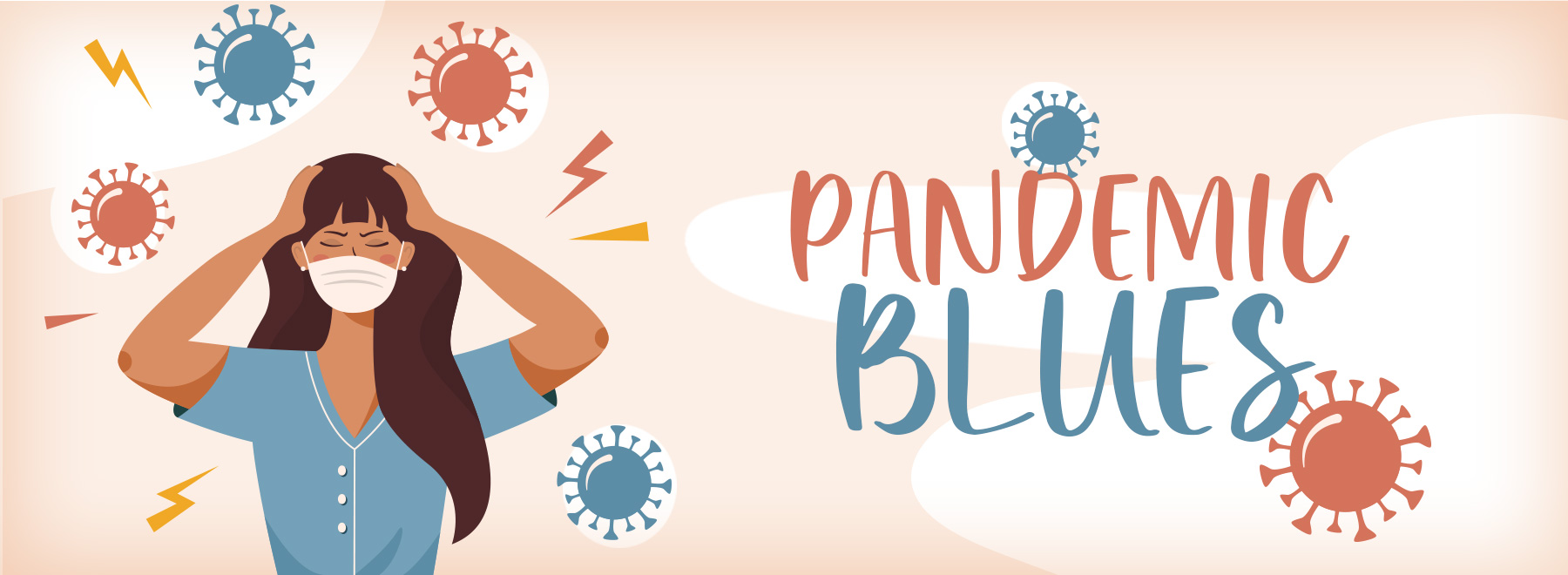Self-care key to pandemic post-traumatic stress relief
You’re a front-line health care worker who still sees patients die from COVID-19, even though case counts have trended down and people are venturing from “new” pandemic normal to old.
Or, you’re not a health care worker, but the virus has taken a profound toll as friends and family have gotten sick or died, and the “new normal” way of living seems never-ending.
You’re frustrated and angry that those who chose to be unvaccinated are driving the virus’ peaks and by flooding hospitals and emergency rooms, are endangering your ability to be promptly cared for if you get sick or injured.
The pandemic may be closing in on two years’ duration, but that doesn’t mean providers and the general public aren’t still feeling its emotional rigors that can result in post-traumatic stress.

Although there’s not a lot of fresh research to quantify current stress levels, “anecdotally, we’re hearing that with the recent (Delta variant) wave, health care professionals are still under stress, and the data on hospitalizations and deaths tells us there’s still increased exposure to death and severe illness,” said Dr. Julie Schumacher, a professor in the Department of Psychiatry and Human Behavior at the University of Mississippi Medical Center.
“This creates the risk for post-traumatic stresses,” she said. “There’s some evidence that the mental health effects are not as profound as in the early phases of the pandemic, but there are still challenges that are making life more difficult and adding to trauma exposure.”
Even when the pandemic isn’t raging and intensive care units not overwhelmed by COVID-19 patients, health care workers can still experience exhaustion from staffing shortages and some of the worst symptoms of PTSD based on their experiences over time. The psychological scars from what they’ve lived through can take longer to heal.
During the pandemic’s first year, nearly one-quarter of all health care workers surveyed by researchers at Yale University reported signs of probable post-traumatic stress disorder, and 43 percent had probable alcohol use disorder, according to a study published in February 2021.
Adding to the pressures on health care workers are pandemic-related worries outside the hospital or clinic, such as children learning virtually and being exposed to COVID-19 at school, social isolation, and front-line staff being treated badly by the public simply because they care for COVID-19 patients.
“There are a lot of divisive politics going on around this that adds to the stress and strain,” Schumacher said.
One emotion not present at the beginning of the pandemic is frustration and anger over people who refused to be vaccinated against the virus, months after safe and effective vaccines became available, and as a result, are sickened by COVID-19, draining health care resources. “Some of the professional organizations I belong to are creating task forces to address that anger,” Schumacher said.
“Any negative emotions, when they escalate over a prolonged period of time, can really wear people down and lead to deterioration in quality of life and mental health,” she said. “That’s definitely impacting our workforce right now.”
Schumacher offers advice to the public and those working in the health care arena who continue to cope with stress and emotional upheaval caused by the virus:
- Focus on basic self-care. “Find opportunities to exercise and time for relationships,” she said. “If you’re having problems with sleep, address them, and if you’re not getting regular nutritious meals, make that happen. Focus on your well-being, because that influences your emotional and mental health.”
- Recognize that you might need help with sadness, grief or anger. “If someone finds themselves crying a lot or thinking about this over and over again and can’t stop, or if their anger is spilling over into their relationships, definitely consider seeking counseling or taking to your primary care provider,” Schumacher said.
“We definitely have effective treatments to help those who are noticing that this isn’t going away, and they can’t get past it.” - The Medical Center in fall 2019 created a team to give help to employees who are “second victims,” meaning they took care of a patient and there was a bad outcome, or suffered traumatically because they made a medical error. The Resilience in Stressful Events team, available 24/7 by calling a hotline, 601-815-7473, has also given immediate support to caregivers who are coping with stress from the pandemic.
Although the virus numbers have improved, “we’re still in the middle of a pandemic,” Schumacher said.
“Some people have felt not OK for a long time,” she said. “It’s better to get help sooner than later.”
The above article appears in CONSULT, UMMC’s monthly e-newsletter sharing news about cutting-edge clinical and health science education advances and innovative biomedical research at the Medical Center and giving you tips and suggestions on how you and the people you love can live a healthier life. Click here and enter your email address to receive CONSULT free of charge. You may cancel at any time.



